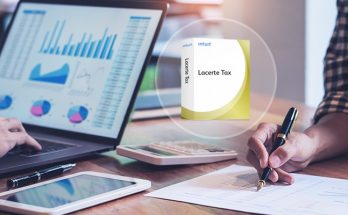Now along with the interests you can claim tax benefits on your investments too. There are many investment opportunities available but it is advisable to choose the ones that offer tax saving investments under the Income tax act. Though tax saving investments can provide lesser liquidity, they yield higher returns.

Tax Saving investments options
These include:
- Life insurance policies: eligible for tax exemptions under section 80 C and section 10 D.
- Pension plans: eligible for tax exemptions under section 80 CCC.
- Health insurance plans: eligible for tax exemptions under section 80 D
- NPS: eligible for tax exemptions under section 80 CCD.
- Equity linked savings schemes (ELSS): eligible for tax exemptions under section 80 C and 10 D.
Life insurance schemes
These schemes in their most basic form provide life cover, yet diversified life insurance plans can have other investment features with varied risk/return profiles that is they can be linked to units and market instruments. In these schemes a certain minimum sum is assured.
These schemes offer a lump sum to the insured or beneficiary upon exit from scheme or upon death. Amounts claimed upon death or maturities are completely tax free whereas amounts claimed prior to maturity are treated as income and taxed accordingly.
Pension Plans
These schemes aim to build up an annuity corpus so that investor can draw a monthly sum as pension after a certain time period. In pension plans, 1/3 of the amount on maturity is exempted from taxes while the remaining is taxed as income as per the guidelines under the relevant section.
Health insurance plans
These schemes offer cover during hospitalization due to accident or other reasons. If you don’t take up health insurance, you end up paying more taxes whereas if you opt for health insurance plan you can incur tax savings of amount that almost equal the cost of premiums.
NPS
NPS is New Pension Scheme that is being offered by the government of India and is a highly regulated and transparent scheme regulated by the Pension Fund Regulatory Development Authority (PFRDA). The aim of this scheme is not to offer liquidity but to build up an annuity corpus that can yield regular monthly incomes upon retirement/resignation.
NPS can be opened by any citizen and NRIs too and is specifically beneficial for people who are not covered by any kind of pension plans and NPS has been yielding higher returns than other investment options.
Equity linked savings schemes (ELSS)
Many ELSS are eligible for tax exemptions. ELSSs are mutual funds in which the invested amount is invested in equity instruments. In these schemes the risk can be higher as compared to the debt funds but the returns are also impressive and these act as wealth builders.
Which tax saving investments should you opt for?
It is generally advisable to divide your money between different types of monetary schemes. After putting a certain amount of your money in liquid savings like FDs in which returns are quite low as well as taxable, you can put your money in riskless investment options like life insurance schemes and health insurance. In such investments, a minimum sum is guaranteed and the returns on investments are higher than that offered by the highly liquid savings options. After you have adequately insured yourself and your family, you can think of how to still maintain the same life style when your earnings stop or drop that is after you retire, pension funds and NSS is offering good returns and judiciously investing in these can give you a very comfortable post retirement life.
Once you have established your base and ensured yours own and your family’s security you get a better appetite for risk taking and at this stage you can opt for investing in equity based tax saving investments or ELSS.
Criteria for choosing tax saving investments
- Risks involved
- Returns on investments
- Minimum investments required
- Benefits including tax benefits
- Premature withdrawal or surrender conditions
- Premium flexibility options
- Authorization and credibility of financial firm
- Capacity of investor.
- Investor preferences.
Who can buy these tax saving investments plans?
Any citizen and even NRIs possessing the required eligibility and valid documents can buy their desired tax saving investments plans. Though documents are almost all the same including identity proof, address proof, bank account-the eligibility conditions differ. Some of these plans or their variants can even be taken up for minors but under the guardianship of parents or an adult.
Bio: This article has been written by Finance Gab team who are the personal finance advisers cum personal finance bloggers.



